FULL TRANSCRIPT
Sir, through you, I want to know from the minister the unemployment rate in the country last year, and the details thereof.
Secondly, I want to know from the minister the number of jobs lost, and the details thereof.
Thank you.
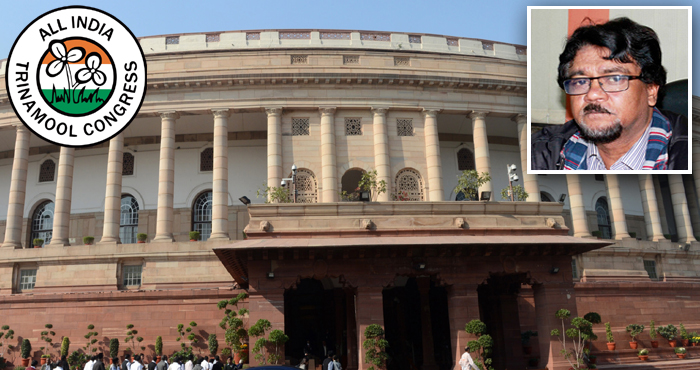
FULL TRANSCRIPT
Sir, through you, I want to know from the minister the unemployment rate in the country last year, and the details thereof.
Secondly, I want to know from the minister the number of jobs lost, and the details thereof.
Thank you.
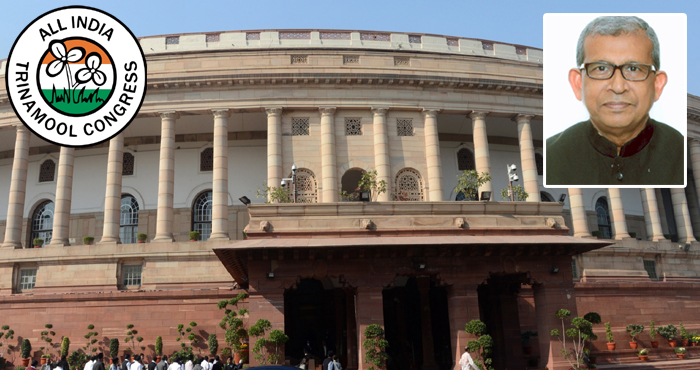
FULL TRANSCRIPT
Sir, I want to know through you, from the minister, what prompted the government and his department, with a pressing effect, to disinvest ONGC, which is one of the top Navratna companies in the country. What are the reasons?

FULL TRANSCRIPT
Sir, the government has reduced the interest rates for small savings schemes by 10 basic points for the second quarter of this financial year. The government intends to match the sustaining interest rate in the banking sector since the Reserve Bank of India cut its benchmark policy rate thrice during the year.
However, the government has lowered the interest rates on small savings for the first time in 2019, which will fetch lower returns to the savers barring interest on savings deposit have been at four percent while the rates from term deposits, public provident funds, national saving certificates and even the girl child scheme, ‘Sukanya Samridhi’ have been cut. Also, the maturity period of the ‘Kisan Vikaspatra’ has been raised by a month.
Sir, moreover, the government has been systematically reducing the interest rates in small saving schemes over the past five years which has hurt the common people, especially the elderly who depend on the interest rates for their sustenance. It has also lead to the depletion of savings of the people.
Sir, we implore the government to look towards the welfare of the common man who are already burdened with high taxation and compliance issues who will now suffer further from their savings being drained. Sir, we ask the government to sustain interest rates on small saving schemes aimed at aiding financial equity among the people of the country.
Thank you.
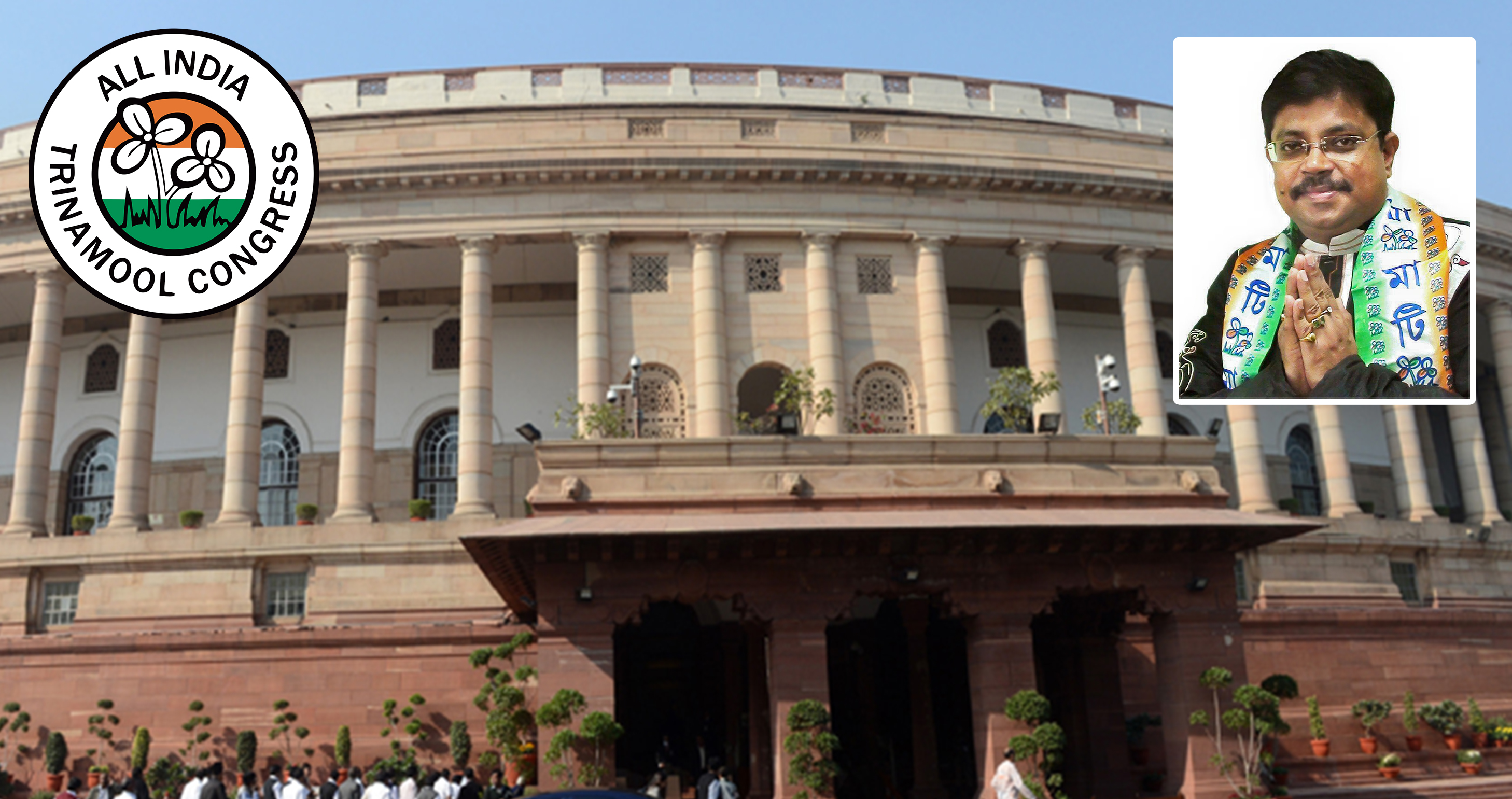
FULL TRANSCRIPT
Thank you for providing me this opportunity to speak on The Central Educational Institutions (Reservation in Teachers’ Cadre) Bill, 2019. I feel this is yet another effort to bring equality by reviving the 200 point roster as against the 13 point system put forth by the High Court of Allahabad. The aim of providing is to consider a central educational institution as a unit in place of departments. Sir, the UGC guidelines of 2006 were quashed by the High Court of Allahabad in 2016.
Sir I have a question, why didn’t the Government introduce this Bill in the following sessions? The Supreme Court too gave similar verdict on January 23, 2019. The Parliament was in session, as we know Sir, from January 31 to February 13. Again we did not find the Government making any effort to legislate on the matter. Instead Sir, an Ordinance was promulgated on March 7 , 2019 just three days prior to the announcement of elections. This cannot be a mere coincidence is what I feel. This held a clear intention of taking advantage of time to make hollow promises.
If we look at the past, in the first 30 years since independence, out of every 10 Bills passed, one was an Ordinance. In the next 30 years, out of every 10 Bills passed about two were Ordinances. In the last two years, out of every 10 Bills, passed four were Ordinances. In this regard Sir, I have deep concerns. Promulgating Ordinances time and again is against the very spirit and nature of a parliamentary form of government.
This House is constituted of earned an eminent representatives of the people and by promulgating Ordinances on every matter the Government is exhibiting an authoritarian feature. It is also discarding the views and inputs of the House. The House seeks to enact laws, which the Indian people deserve. But, as of today, as we saw most deplorably, the way the Government is functioning. Many Hon’ble Members were complaining that they were denied the rightful opportunity of putting in their suggestions in the form of Amendments. However Sir, we understand the House should be given due importance it deserves, I request the government to modify this process of discharging functions.
Next Sir, I would like to say the main mandates for reservation of Scheduled Castes and Scheduled Tribes and Other Backward Classes to fill up more than 7,000 vacant positions in educational institutions. This is definitely a welcome step but the process that this government has adopted is no doubt faulty and promotes the interests of certain sections of the society.
Sir, I would like to further say that we know that the new notification is also an attempt to dent efforts to ensure representation of SC/ST and OBC categories as per the constitutional mandate of 15%, 7.5% and 27% respectively. If this system is taken, all professors of the same grouping across all departments in the university will be grouped together to estimate the extent of the quota. As a result, positions open will be reduced, limited and not filling up positions as per requirement of subjects. Some departments/subjects will have all reserved and some with all unreserved candidates. Moreover, the number of vacancies will not meet the required constitutional mandate.
This is nothing but a sheer motive to leverage positions for the upper caste candidates. This bill proposes to dilute the entire concept of reservation itself.
Today, the reservation system in our government posts is on the basis of the posts and not the number of vacancies in that arena. So, why should the same system not be followed for educational institutions as well? This Bill proposes to bring about a systemic change in the basis of reservation. It is only introducing a system of discrimination in the educational institutions that will only alienate the backward classes.
Sir, I would also like to say that section 4, sub-section (i) and sub-clause (a) provides for a discriminatory clause. It says that certain institutions will be kept out of the provisions of this Bill. I would request the minister to explain the basis of such institutes. Some like science and technology, I understand. But when we are doing this is the government making mistake of direct capabilities of concerned categories that is the SC/ST and OBCs. When these universities have reservation for student community, why not they have it for the teaching community as well?
Sir, I would also like to question that is the government creating a sense of division and discrimination in appointing positions to the socially and economically deprived in these institutions of esteem. Is the government questioning the capabilities and undermining those that are entirely eligible.
Also Sir, we can see that our Hon’ble members of the treasury benches are taking the credit of having given the reservation for the economically backward sections. After all, taking credit is the most easy thing to do. Sir, in this Bill itself they have been deprived also. Sir, I would like to say that I have a few suggestions for the hon’ble minister.
Firstly, reservations should be allowed for the universities that are excluded because if the criteria put forth by them is made by any candidate of the concerned section then why not given him/her the opportunity. Why not give the devil his/her due?
Secondly, a regulatory body should be constituted to ensure a proper functioning of the provisions of the Bill and in case of any dispute it can discharge quick verdicts. This is so necessary because even after this Ordinance we have four universities, namely, Central University of Punjab, Karnataka University, Tamil Nadu University and Indira Gandhi National Tribal University. They did not comply with the provisions. This would have gone unnoticed Sir, if it was not brought up by one of the hon’ble member of this very August House itself. Also Sir, this is why a responsible body to handle the affairs is necessary. This body should be entrusted with the duty of looking into the judicial matters arising after employment. This is because every other day we come across cases involving hatred towards vulnerable sections, namely the SCs, STs, OBCs and the economically-backward sections (EBS) .
Doubting and questioning their capabilities is not right I feel. There is a high chance that the teachers being appointed through this will also face similar problems and that is why this is very necessary. This is also very important and imperative, Sir. At a time when we soon aspire to make India the third largest economic power of the world, we declare a mission to the moon, we boast of progress achieved in space which only three other nations in this globe are capable of, we are failing to provide a level ground for all. This Sir, is proved by the fact that atrocities meted out to the backward classes has increased by 37 per cent in the last decade.
Sir, in this regard I would also like to say that moreover to avoid cases like that, which involved suicide of Rohith Vemula, this is a very important step that the Government can and should take and it cannot be done until serious steps are taken.
Sir, also in this case, we have another most unfortunate case that took place recently, as recent as May, in Mumbai, where a young medical professional, Payal Tadvi lost her life due to suicide committed as a result of alleged casteist slur and discrimination. In this regard I would like to mention that Sukhdev Thorat, a professor emeritus of JNU and a former UGC chairman, had led a committee to investigate allegations of discriminatory treatment of SC and ST students at the All India Institute of Medical Sciences (AIIMS), and which had found that lower caste students had faced discriminations at the premier institute.
About the measures that should be taken to check discriminatory behaviour, the report says: “There has to be an Act by the government to make caste-based investigation at the university campus a punishable offence. Apart from this, a set of guidelines should be formulated for the upper caste students on how to behave in the presence of students from the marginalised sections.”
Jobs and educational reservations are very vital in the view of Dr Ambedkar. He had wanted reservation in services and educational institutions to be permanent. If those reservations were not put in place, it would have led to a constant struggle of the oppressed, who would have never found a channel to come into the mainstream. What would have been denied to them they would have taken by force. Thus we have to ensure measures to bring the backward classes into public service and provide to them what is rightfully due to them.
Thus I would like to request to send this Bill to a Standing Committee where stakeholders from all fields associated with this Bill would be consulted and proper legal suggestions are taken to correct the provisions of this Bill that would otherwise fully undermine the essence of reservation and its effects.
Thank you, Sir.

FULL TRANSCRIPT
The Indian Medical Council (Amendment) Bill, 2019 is the prelude to another Bill, precessed to another chapter, the NMC. The Indian Medical Council (Amendment) Bill, 2019 is to repeal the Ordinance promulgated by the Mahamahim Rashtrapati ji on January 12, 2019. This Bill has also been scrutinised by the department-related Parliamentary Standing Committee on Health and Family Welfare. This is not the first related Ordinance though – there has been one in 2010, one in 2018, and then another in 2019.
Let me first clarify that my party, All India Trinamool Council is always against the attitude or attempt to bypass the elected House of the People and pass an Ordinance. In the last few years, we have seen a ratio of 10 to 4 with respect to Bills to Ordinances whereas after independence, the first 30 years saw a ratio of only 1 Ordinance for every 10 Bills while the next 30 years saw only 2 Ordinances for every 10 Bills. This is undemocratic and unhealthy for our democracy.
The question is, why was the Bill was allowed to lapse several times since 2016, when the matter is such a serious one? We have seen many deaths, particularly 50 deaths in only one State of our nation. So I consider it my sacrosanct duty as a responsible Opposition member to sound out to the government that passing an Ordinance is a peril to democracy.
The Indian Medical Council was formed in 1933 and the first Indian Medical Council Act was formulated in 1956, but thereafter rampant all-pervasive corruption had crept in and the Medical Council was plagued by it. The functions of the Medical Council mentioned thereof were to make recommendations to the Central Government on the subjects of giving recognition to medical institutions, determining the course of study and examinations after completing the syllabus, inspection of examinations, and maintaining the register for medical practitioners.
As per List II in the Seventh Schedule of the Constitution, and as determined by Article 246, Health is a State subject, and so the Central Government should not formulate rules to interfere in this provision of empowerment to the States. This Bill deals with the fate of those whose faces we see right when we are born and at the end, when we die, and they are the doctors. A former HRD Minister contradicted Darwin’s theory of evolution, stating, and I quote, “none of our ancestors have seen an ape turn into a man.”
Madam, such statements are not only dangerous but also highly irresponsible, as the very fundamental principles on which medical science is built are shattered. It has been stated, and I quote, that “cancer is the result of past life sins and a form of divine retribution.” It is ridiculous. Some have stated that cow urine or ‘gau mutra’ can cure cancer. That is absolutely against the present scientific standard of research all over the world. The vice-chancellor of a State university has claimed that the technique of creating test tube babies existed in ancient India, and referred to the Kauravas.
According to the Indian Constitution, the development of scientific temper, humanism and the spirit of inquiry and reform is the duty of every citizen and is implicitly the responsibility of the state, and the state should take cognisance of this fact. However it is highly unfortunate that irresponsible statements have been made by individuals who maintain high public offices which attack the very basis of medicine.
We agree that India has a very rich cultural heritage, the history of medical sciences being known through ‘Charaka Samhita’, written in 200 BC, and ‘Sushruts Samhita’ (Sushruta was known as the ‘Master of Surgeries’ in India in the 13th century), but we have come a long way from that. Today we have research on using stem cells for improving cardiac health, in-vitro fertilisation, preimplantation genetic diagnosis (PGD), etc. Today’s medical science is very strong. The inspiration doctors get is from practitioners like Leonid Rogozov, a Soviet GP (general physician) on the sixth Soviet Antarctic Expedition. He had the strength to perform appendectomy on himself alone, when he was stationed at the Arctic Novolazarevskaya Station.
Doctors are not puppets. A sixteen or seventeen-year-old forgoes movies with friends, family reunions, shopping sprees with mother to sit and study for 16 hours a day in order to crack the medical entrance examination. Students of our varied country, with multiple linguistic areas and regional sentiments should be allowed to write their exams in their mother tongue, if they are proficient in that.
Deaths have occurred with respect to writing the National Eligibility-cum-Entrance Test (NEET). A particular incident I want to mention happened in Tamil Nadu, when a girl, a topper, committed suicide because she couldn’t crack the NEET. We suggest that to avoid such deaths we should do away with this entrance test. We should depend on the class 12 qualifying examination marks to give entrance into medical institutions because students study very hard for this. They then study 12 hours a day for six years to become attain the Bachelor of Medicine and Bachelor of Science (MBBS) degree. Can this rigorous six years of study be diluted by a six-month bridge course of a quack?
For clinical training many junior doctors perform emergency services through day and night. Being only human they too feel tired so they sleep in a mackintosh, which we wear during operative procedures, on the floor of the OT. I don’t know any other professional who sleeps on the floor of the office just for the sake of performance of duty. Doctors are nearly gods and accepted mortality rate is there in the statistics of medical science. But in India today, when a patient expires the family of the patient has the gall to beat up and hurt the healer. This is not unusual in this ‘Lynchistan’. This is highly condemnable.
Socrates once asked, “Tell me, is a doctor in the precise sense a money-maker or someone who treats the sick?” and Plato remarked, “Is the practise of medicine a science, an art, a trait, a craft, a business, a profession or a combination thereof?”
Well, a doctor, after nearly 10 years of back-breaking training, is indeed a godly figure, but to raise his family and himself he requires money too so he should not be blamed for earning a livelihood. Property and personal safety should be looked after by the state, by the government. Security funds should be increased and budgetary allocations for the medical curriculum should be increased. In this country, we have less than 2 per cent of the budgetary allocation for medicine and none other than Arvind Panagariya ji had commented that rural healthcare in India faces a crisis unmatched by any other sector. And instead of trying to enhance the budgetary allocations we are trying to rein in the doctors.
I agree that the MCI has been very corrupt; officers have been arrested. There was all-pervasive rampant corruption by the medical mafia. So, we have to be aware of this. But we should not overrun the State Government’s responsibility because health is a State subject; it should remain with the State.
Appointing medical administrators should not be through nomination. It is a rule that people in a nominated body or board will be medical educationists of proven administrative quality. Though I agree that administrators are required to run the back office, capable administrators may not necessarily know about cutting edge technology, about the science of the medical fraternity. So it should be medical people only; and it should be through the process of election in all the branches of the State.
Doctors should be allowed to elect their chosen members, who will in turn inform the central body. Bureaucrats do not have the qualities required to run the Medical Council because they have no idea of cutting-edge technology. So raising the number of members from 7 to 12 is ridiculous because unqualified people in huge numbers will not be able to take the decisions related to the medical curriculum and the examinations. There has to be inclusion of doctors.
This is a State subject and the doctors of the State should be allowed to elect from among themselves qualified doctors who will represent and run the whole country’s medical system so that the federal structure is not hampered.
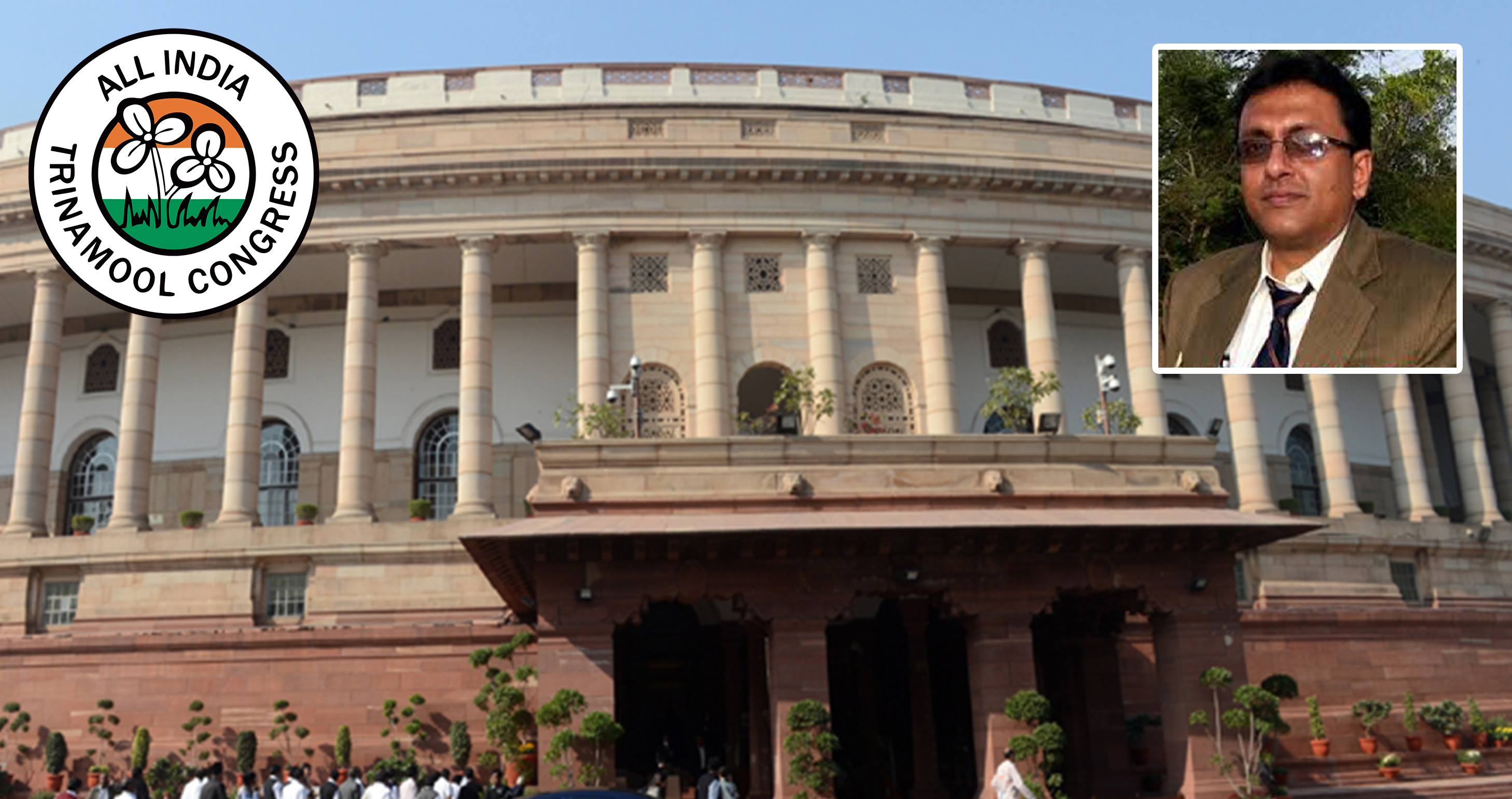
FULL TRANSCRIPT
Thank you very much Sir, for giving me the scope to speak on this Bill. Sir, I would have been very happy if our government would have given sufficient effort before to improve this age old system of medicine.
Sir, in my opinion this is nothing but another backdoor process of grabbing the power of another democratically elected autonomous body, which we have been witnessing since so many years. Sir, our present government has broken the previous record of bringing Ordinances. So far, as my knowledge goes, previously it was a maximum of 1 or 2 Ordinances per 10 Bills. Now, so far my information goes, it has crossed more than 4 per 10 Bills. It is really shocking.
Sir, I would like to put forward certain important points before this House. In the year 2018, the Central Council of Homeopathy was dissolved based on certain allegations of corruption against the then existing Central Council of Homeopathy; a Board of Governors consisting of seven members was formed at that time. Sir, the most unfortunate part of the story is till date one post is lying vacant out of the seven members of the Board of Governors.
Secondly, one year has passed that vacant post is still lying vacant. The charge was that of corruption against the Central Council of Homeopathy, but unfortunately no charge could be proved in last one year. Sir, it was ensured that a democratically-elected Central Council of Homeopathy will be formed within one year. Unfortunately that election could not be held in the last one year. So, I am becoming apprehensive whether in the coming year this government will be really able to hold the election or not.
Sir, in 2019 this Bill was brought in Lok Sabha on June 27 with a proposal of extension of the duration of Board of Governors for another one year. Sir, my certain observations and reservations are like this. First of all, the Central Council of Homeopathy used to be formed by the process of a democratic election. But whenever there is a provision of Board of Governors it was not known to all of us what was the criteria of being a member on that Board. I don’t know on what basis the government selected the Board of Governors. So, I once again believe that it is nothing but the effort of grabbing the powers and giving it to the hands of bureaucrats.
Sir, my question is why the election could not be held in the last one year?
Sir, my question is why the vacant post could not be filled in the last one year?
Sir, my question is – Homeopathy is an age old system of the country, and so far my state of West Bengal is concerned, it is the pioneer of this homeopathy system. But most unfortunately not a single representative from this State was given the opportunity of being a member of this Board of Directors. Sir it is very unfortunate to note.
Sir, in our state of West Bengal, when Madam Mamata Banerjee took charge as the Chief Minister cum Health Minister in 2011, the then health budget was Rs 682 crore. And now in 2019 it has become Rs 9700 crore, I repeat Rs 9700 crore. An increase of nearly 1400 times. Sir, unfortunately on the other side, in our country the health budget is meagrely 1.5% of the total GDP. And moreover we have seen that out of the total budget of Ayush department, homeopathy gets only 13% of the entire departmental budget. It is reflected in the name, as Ayush stands for A for Ayurveda, U for Unani, Y for yoga, S for Siddha and H for homeopathy. H comes last, so budgetary allocation for homeopathy also comes last. It is only 13% of the total Ayush departmental budget, Sir.
Sir, I would like to highlight certain important points of my own state. Status of medical officers of homeopathy in India – the total number of posts is 71 and the vacancy is 39, that is more than 50 per cent. The CGHS wellness clinic vacancy in West Bengal, total created post was 10 and the vacancy is 6; so 60% is vacant there. Specially in the clinics like Airport, 2 vacancies, in clinics like Shyambazar 2 vacancies, in clinics like Dover Lane. These clinics are very very important so far as their geographical distribution is concerned, but the posts are lying vacant, Sir.
Sir as per the need of the hour, few more posts should be created specially for places like Siliguri, Jalpaiguri, Asansol and Durgapur. Sir, I would like to let you know regarding the outreach schemes camps status in West Bengal. It is only 10 where it should be at least 3 per district, that is for 23 districts it should be at least 69, Sir.
Finally, the junior research fellows and senior research fellows should be given due importance, Sir. If you go to our National Institute of Homeopathy, which is situated in Kolkata, you will start crying, I repeat you will start crying, the situation is so horrible. The faculties are not there, patients hardly like to go to that particular institute to get treatment. The same condition exists in the Shillong Institute which was supposed to be the best institute in north eastern India.
Sir, my humble submission is that our government should give due importance to improve this age old homeopathy system, instead of going for the bridge course, as mentioned by the previous speaker. Instead of improving this homeopathy system, they are trying to run a bridge course, by the process of which homeopaths, ayurveds are allowed to practise modern medicine. Then they neither become homeopaths nor allopaths. So, this points must be taken into consideration.
Thank you very much.
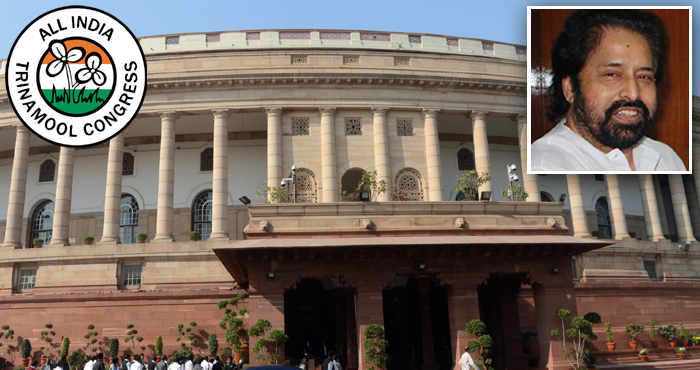
FULL TRANSCRIPT
Sir, Shunya Kaal me aap State subjects ko allow mat karein. Yeh House ke khilaf hain.
State subjects are not allowed to be raised on the floor of the House if it is a law and order situation. If it starts then every Member under their jurisdiction will raise the same issue and your Zero Hour purpose will be a big zero.
Sir, I will request you to take a strong step in this regard. Thank you.

FULL TRANSCRIPT
Chairman Sir, first of all, as yesterday was Doctors’ Day I would like to wish happy belated Doctors’ Day to our Hon’ble Health Minister, who is also a doctor.
Sir, it is very unfortunate to remind you all, though India is the sixth largest economy of the world and we have seen the budgetary allocation for health in our country was hardly 1.5 per cent or even less. We have also noticed that our Hon’ble Minister hardly found 1.5 minutes to spend on budgetary allocation speech.
Sir, my question is… in our State of West Bengal we have seen that our present Chief Minister Madam Mamata Banerjee has increased the budgetary allocation for health from Rs 682 crore to nearly 1400 times in the last seven years. So, can we see our State as a role model for the rest of the country?

FULL TRANSCRIPT
Sir, I want to raise one important issue. Through you Sir, I want to attract the attention of the Hon’ble Railway Minister.
Sir, in our state, Kharagpur railway town is called ‘Mini India’ where 30 percent of the Telugu population resides. Tamil, Kannadigas, Malayalis, Odia, Bihari, Chhattisgarhi, UP, Bengal, and also Assam reside here – it is really a ‘Mini India’. It is one of the very important rail towns with the longest railway platform in India – Kharagpur.
Very unfortunately Sir, recently, water is not properly served to the railway quarters, railway ‘basti’ areas and nearby adjoining areas. Sir, there is a powerful municipality working in Kharagpur town, an elected body. Several times the municipal authorities have approached the divisional authorities of Kharagpur, including South Eastern Railway headquarters at Garden Reach. Kindly allow us to work with railway administration. They wanted to extend their full cooperative hands for construction of roads in the ‘basti’ area, to provide the drinking water facility, for lighting and a sewerage system.
Sir, recently as per a report, sweepers who are in charge of cleaning the areas do not have personal latrines. Such things should be intervened by the Hon’ble Railway Minister and I want to appeal through you Sir, it is my earnest appeal to the Railway Ministry that they should send a high powered delegation or administrative team to the Kharagpur area and find out the provisions whether the local railway authorities can work along with the Kharagpur Municipality in a positive mode to uphold the demands of the railway staff, workers and the people living in the ‘basti’ area particularly.
It can be a beautiful system if there is an MoU signed between the Kharagpur Railway Authority and the Municipal Authority. Then all the problems can be solved with the help of the Railway Ministry and the State Government. This is my appeal to you, Sir.
Thank you.
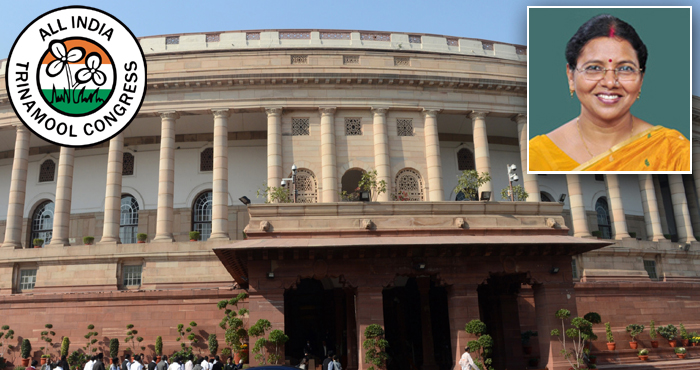
FULL TRANSCRIPT
India has emerged as a superpower, something that is alerting those involved in the hegemonistic balance of power. But the largest democracy is still tainted with caste-based discrimination. There has been a 37 per cent increase in atrocities against scheduled castes and scheduled tribes in the past decade. This is very alarming; not just for prohibiting crimes, it is an urgent requirement for establishing grounds so that the vulnerable groups can be at par with the groups having privilege.
This amendment Bill is yet another effort to bring equality by reviving the 200-point roster as against the 13-point one, as put forth by the Allahabad High Court. The aim of the Bill is to consider a central educational institution as a unit, in place of department, to ensure proper functioning of the reservation system in direct recruitment of teaching faculty.
I take the opportunity to explain this as the public might be in a dilemma as to how this is beneficial. Rather than direct reservation, department-wise reservation will yield more employment. But this is wrong because the number of vacancies in each department will not be enough to support the reservation. Thus I appreciate this Bill.
But I would like to seek clarification from the Hon’ble Minister, through you, Madam, on the necessity of promulgating the Ordinance dated March 7, 2019. Article 123 of the Indian Constitution, as interpreted by Pandit HN Kunzroo, says that “if you deal with a situation where Emergency in the country necessitated an urgent action”. The process of UGC guideline 2006 was quashed by the High Court of Allahabad on April 7, 2007. Why didn’t the government introduce the Bill in the following session of Parliament? The Supreme Court also gave a similar verdict on January 23, 2019. The Parliament was in Session from January 31 to February 13, during which a historic Bill was passed. Then why didn’t the government make the effort to legislate on this important national issue?
Instead, an Ordinance was promulgated dated March 7, 2019, which was just three days prior to the announcement of elections. This cannot be a mere coincidence; it held a clear intention of attracting vote bank. Promulgating Ordinances time and again goes against the very nature of parliamentary form of governance. This House is composed of eminent and learned representatives of people. By promulgating Ordinances on every matter, the government is exhibiting an absolutely authoritarian streak. It is disregarding the inputs and views of this House and in this case, it has failed to include economically weaker sections in the Ordinance. This House sits to give better laws to India, by going beyond the purview of party politics. Therefore it should be given the importance and respect it deserves.
Now, coming to section 4 of the Bill, to clause (b) of sub-section (i), it is a valid point and is according to the fundamental rights of the minority communities. But sub-clause (a) provides certain institutions will be kept out of the provisions of the Bill. I would request the minister to explain the basis for selection of the institutions. As much as I could interpret, all of them have one thing in common – that all the institutes fall under the category of science and technology. By doing so, is the government again repeating the mistake of doubting the capabilities of the concerned category? When these universities have reservations for the student community, then why not for the teachers as well?
Sir, I would like to put forth a couple of suggestions. Firstly reservations should be allowed to universities that are excluded because if the criteria put by them is maybe by any candidate of the concerned section, then why not the opportunity be given to him or her? After all it is our fundamental duty to promote scientific temper in the society and what better by promoting the people who have been neglected throughout.
Secondly, a regulatory board should be constituted to ensure proper functioning of the provisions of the Bill and in case of any dispute it can discharge quick verdict. This is necessary because even after the Ordinance, four Universities, namely Central University of Punjab, Karnataka University, Tamil Nadu University, and Indira Gandhi National Tribal University did not comply with the provisions.
This would have gone unnoticed had it not been brought up by Shree Javed Ali Khan during Zero Hour in the Rajya Sabha. Now the resolution of the matter, as asked upon to do so by the Hon’ble Chairman of the Rajya Sabha, will take a lot of time, delaying the whole recruitment process, depriving the eligible. This is why a responsible body, to handle the affairs, is necessary. The body should also be entrusted with the duty of looking into the redressal matter arising after employment. This is because every other day we come across cases involving hatred towards vulnerable sections, concerning the Bill, namely Scheduled Caste, Schedule Tribe, Socially and Educationally Backward Communities and Economically Weaker Sections, doubting and questioning their capabilities.
There is a high change that the teachers will also face similar problems. A Hindi poet has put it in this manner. “Dafter main sab theek thak chal rahe tha phir Dalit hoon main bata diya sab ko”. In other cases like that which involves suicide of Rohith Vemula.
This is a very important step that the government can take steps and action. And it cannot be done until serious steps are taken.
Another young girl Payal Tadvi lost her life; Sukdev Tharav, a professor of JNU and former UGC chairman who headed the committee to investigate the allegation of discriminatory treatment against scheduled caste and scheduled tribe students at AIIMS had found that lower caste students faced disclination in everyday life at the primer Institution.
About the measures that should be taken to check the discrimatory behaviour, he said there has to be an act by the government to make caste discrimination at the university campuses a punishable offence. Apart from this a set of guidelines should be formulated for the upper caste students on how to behave in the presence of students who are from the marginalised sections.
Finally, I would like to conclude by saying that in order to ensure the compliance of Constitutional provision under Article 14, 15 and 16, the government must consider the suggestion and not just discard it.
Last I would conclude by quoting Sheetal Sathe, a young Ambedkarite – Nausea served on the plate:
The nausea is served in the plate , the untouchable nausea
The disgust is growing in the belly, the untouchable disgust
it’s there even in buds of flowers, it’s there even in sweet songs
that man should drink man’s blood ,
which is the land where this happens
which is the land of this hellish nausea.
Thank you, Madam.